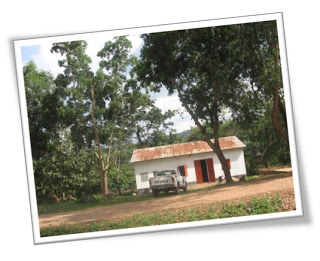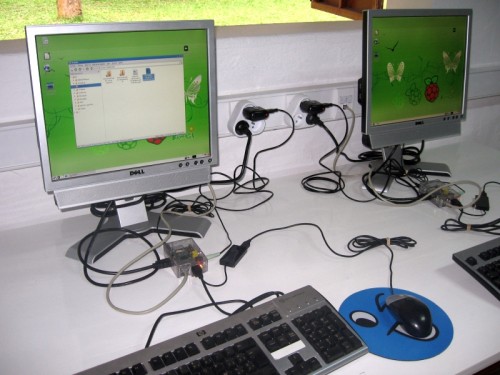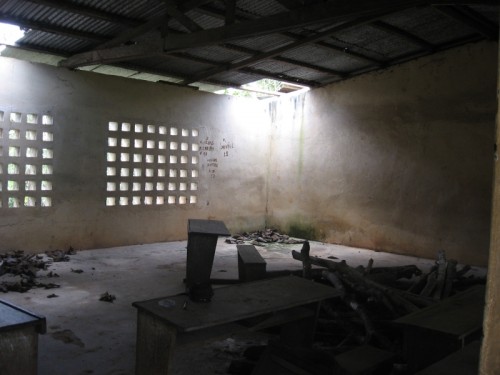| Dominique Laloux first got in touch with us in May 2013 when he was on the point of leaving to spend a year in the rural Kuma region of Togo in Western Africa, an area where, until 2012, 75% of teachers had never used a computer. He had previously joined a team of Togolese friends to set up the Kuma Computer Center in the mountain village of Kuma Tokpli for the students and teachers of five local secondary schools, and planned to introduce Raspberry Pis there.  The building that currently houses Kuma Computer Center’s first computer room in Kuma Tokpli We next heard from Dominique earlier this month. We were delighted to learn that besides the Center’s first computer room, which has now been up and running for almost two years, the team has established a fully functional Raspberry Pi computer room, with 21 Pis and a couple of other PCs, in Kuma Adamé, a village about 20 minutes’ motorbike ride from Kuma Tokpli. This will be used daily by the 200 students of the local middle school, and was financed largely by former Adamé residents who have settled in Lomé, Togo’s capital. A team of students and teachers from The International School of Brussels, where Dominique works, helped fund the purchase of the Raspberry Pis and their accessories.  The new Raspberry Pi computer room in Kuma Adamé The initial focus is on teaching the students basic computer literacy, and the team chose the Raspberry Pi based on its low initial cost, its anticipated low maintenance costs, its low power consumption and its use of Open Source software. Dominique believes – and we think he’s probably right – that this is the first Raspberry Pi computer room in Togo! He says,
 Before work began on the new computer room Key to the sustainability of the project is that it has been developed within the local community for the benefit of community members, having begun as an idea of teachers in Kuma. Various groups in the community are represented in the management of the project, contributing different kinds of support and expertise. Dominique again:
Currently the team is constructing a small building in Kuma Tokpli, which will become the permanent base of the Kuma Computer Center (and the second largest building in the small village), superseding the facility currently made available by a local farmers’ association. They also continue to work on the curriculum, and hope to introduce the students to programming in addition to teaching ICT and using the Raspberry Pis and other computers to support learning across the curriculum. If you’d like to support the Kuma Computer Center, with funds or otherwise, have a look at their website. And if you’ve got an idea as good as this one to teach young people about computing, you’ll want know about the Raspberry Pi Education Fund, recently opened for applications and aimed at supporting initiatives like this with match funding; learn more here! |
A Semi-automated Technology Roundup Provided by Linebaugh Public Library IT Staff | techblog.linebaugh.org
Tuesday, August 19, 2014
The first Raspberry Pi computer room in Togo
Subscribe to:
Post Comments (Atom)
No comments:
Post a Comment